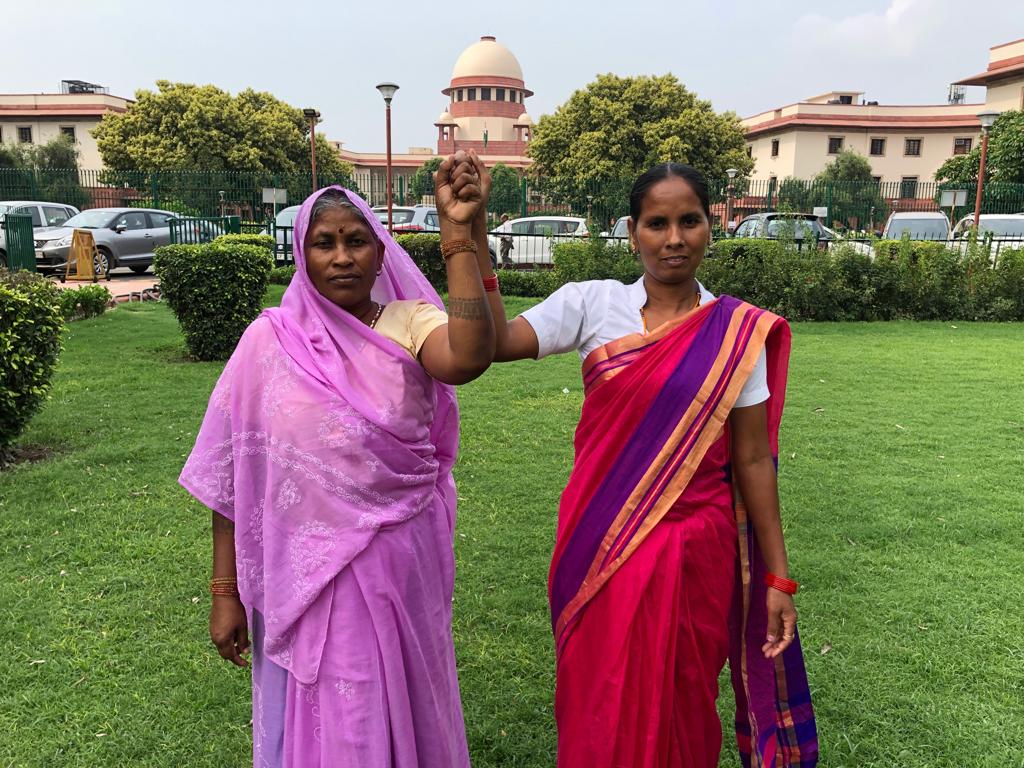Adivasi human rights defenders Sokalo Gond and Nivada Rana have moved Supreme Court praying for justice for millions of forest dwellers, especially women, who have been denied forest rights, and now face the prospect of eviction from their traditional habitats. The duo have filed an intervention application in the ongoing case led by Wildlife First.

Image: https://cjp.org.in/
It may be recalled that on February 13 this year, the Supreme Court had ordered the eviction of thousands of Adivasi and forest dwelling families from their traditional habitat. Though the order was subsequently stayed, the fate of these people still hangs in the balance and their future remains uncertain. The loss of not just their homes, but also their livelihoods threatens to deal twin body blows from which these marginalised and vulnerable people are unlikely to recover.
In the five months since then, 19 intervention applications have been filed in the matter, all defending the constitutional validity of the Forest Rights Act 2006, a historic legislation that brings a jurisprudential shift in recognising the livelihood rights of traditional forest Dwellers, Adivasis and Dalits.
Sokalo and Nivada’s intervention application is supported by the All India Union of Forest Working People (AIUFWP) and Citizens for Justice and Peace (CJP), two organisations that have been actively campaigning for forest rights. What makes this intervention application special is that it explains how the law is in statutory line with Schedules V, VI and IX of the Constitution. Forest Rights Act 2006 is the first and only law that recognises the independent rights of women over land and cultivation. The law was brought in to set right the imbalance of power in favour of a Repressive Forest Department empowered by the colonial-era Indian Forest Act of 1927.
Adivasis and forest dwelling communities have already borne the brunt of historical injustices at the hands of the British colonists who brought about legislations to appropriate forest land and produce. What subsequent administrations failed to acknowledge is that these traditional forest dwelling communities are also the ones protecting our environment and biodiversity from twin threats from greedy corporations and climate change.
Moreover, counter affidavits have been filed by at least 10 state governments. The matter comes up for hearing today.
